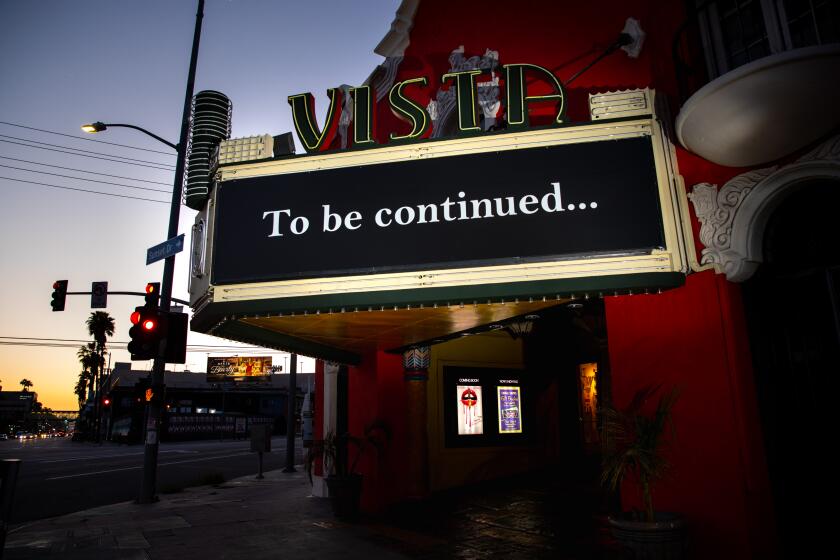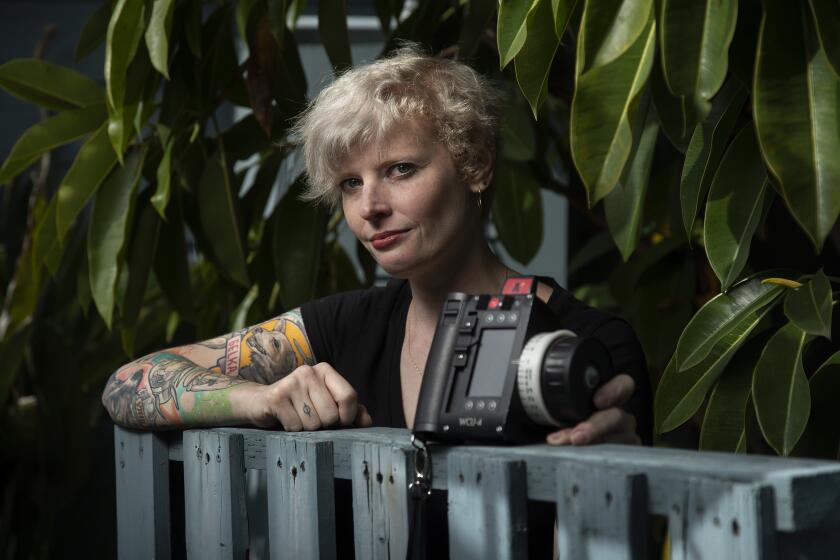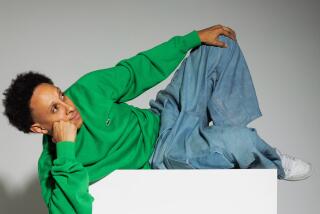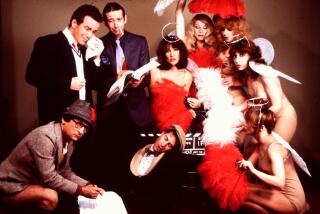Groundlings and Upright Citizens Brigade face racism and the ‘comedy problem’
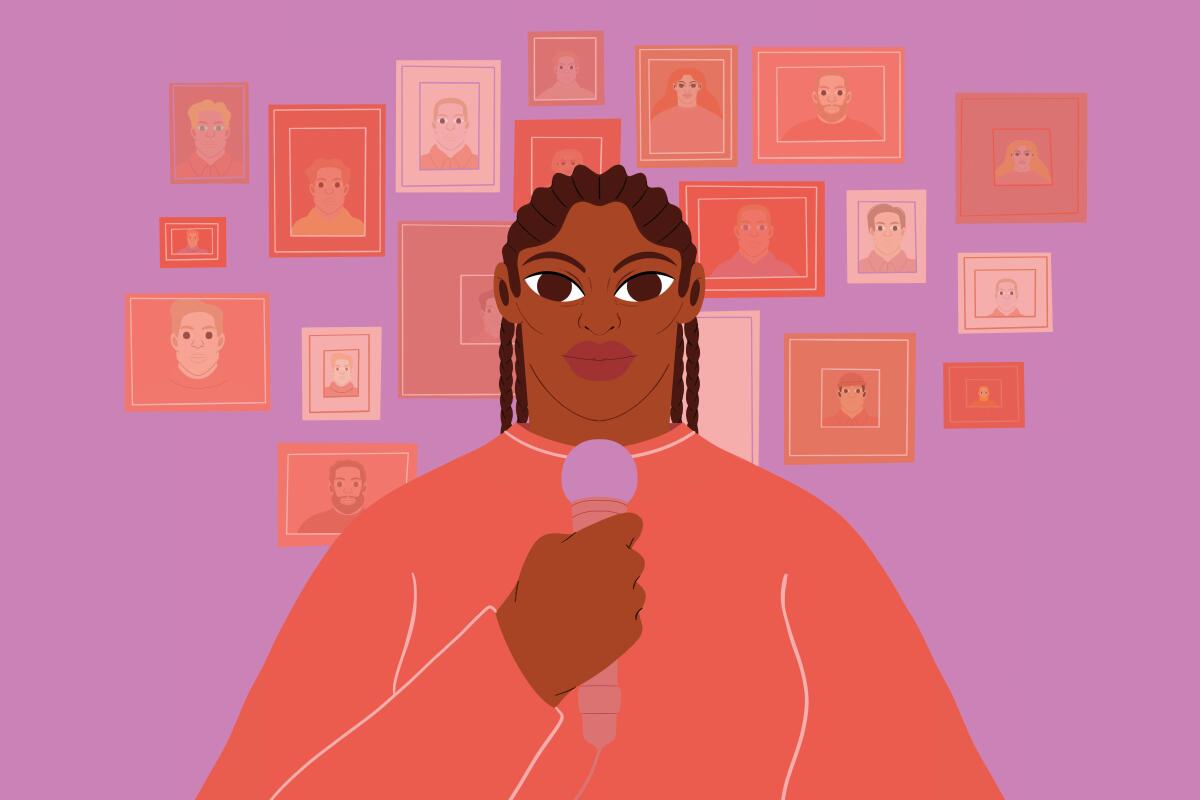
- Share via
The wall had 30 framed pictures. All the pictures were of faces. All the faces were white.
That wall was the first thing Kelly Park saw when she stepped through the glass front doors of the Groundlings Theatre & School in L.A. day after day in the late aughts. It celebrated the comedians who had been voted into the main company and earned the honor of being called Groundlings after a rigorous program that could last years.
The wall made Park sad, and as a Black administrator at the school, she grew determined to change it.
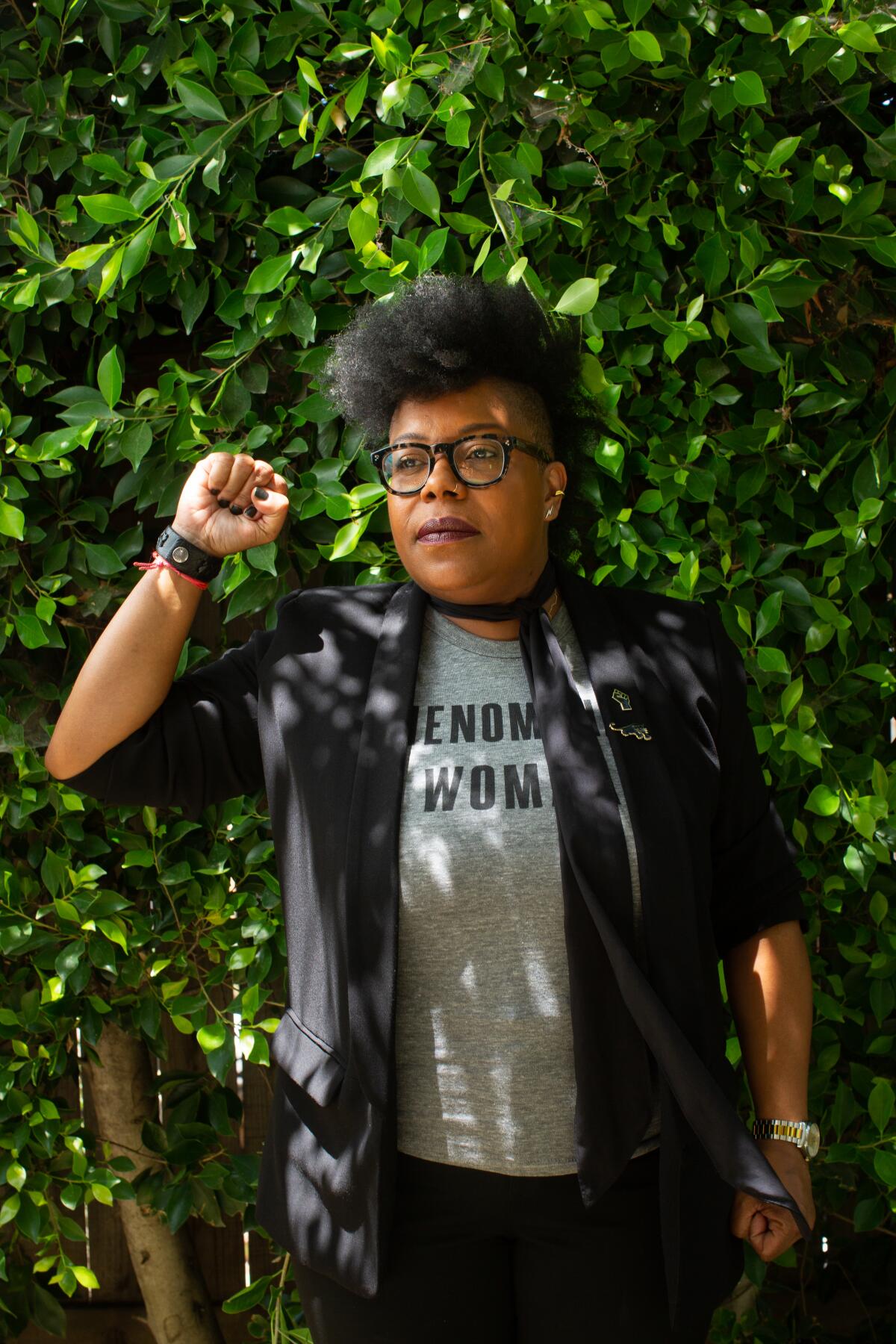
“Imagine being a young Black person walking into this place,” she said. “The wall showed you that you can’t be that.”
Park resigned from the company in 2010, the wall of white faces staring silently forward as she left. From 2006 until 2016, not one member of the Groundlings’ main company was a person of color.
There is finite room in the top ranks of L.A.’s leading improv and sketch comedy groups, and the performers selected to breathe the rarefied air have long been white. This was the painful sentiment echoed again and again in interviews with 14 people of color — past and present comedians, teachers, students and administrators at Upright Citizens Brigade and the Groundlings, prestigious comedy schools and theaters that have launched some of the biggest names in film and TV.
From director’s chairs to executive suites to movie theater seats, no element of Hollywood will be untouched as society movies forward from the pandemic. We asked people all around the industry what the future might look like.
Critics said the self-perpetuating white power structure fostered by these institutions led to the belittling and marginalizing of diverse voices, racial bias in voting for team members, and lip service to the concept of inclusion while providing little mentorship or paths for advancement to Black, Indigenous or other people of color.
“The reason you take these classes and get involved is because you want to be seen on UCB stages. It could change your struggle immensely, it’s why you do it for free,” said Robert L. Hines, a Black comedian who took classes at UCB from 2015 to 2019, during which time he unsuccessfully auditioned for UCB’s coveted Harold teams performing in marquee slots. “But every time you go it’s always the same white guys at Harold shows.”
The difficulties faced by BIPOC comedians in improv and sketch comedy are neither new nor secret. But the nationwide protests against police brutality and systemic racism that arose after the killing of George Floyd, combined with the coronavirus pandemic and its disproportionate effect on communities of color, have opened a larger window on these grievances. The concerns are receiving plenty of air, particularly on social media, and for what feels to many like the first time, grievances are being met with action.
In early July, a group of current and former performers at the Groundlings sent an open letter to the company listing actions to “create the real systemic change that the theater needs.” The letter said that when the theater released a statement in support of Black Lives Matter, BIPOC performers associated with the company felt let down by “a theater that touts itself as a meritocracy while operating like a country club.”
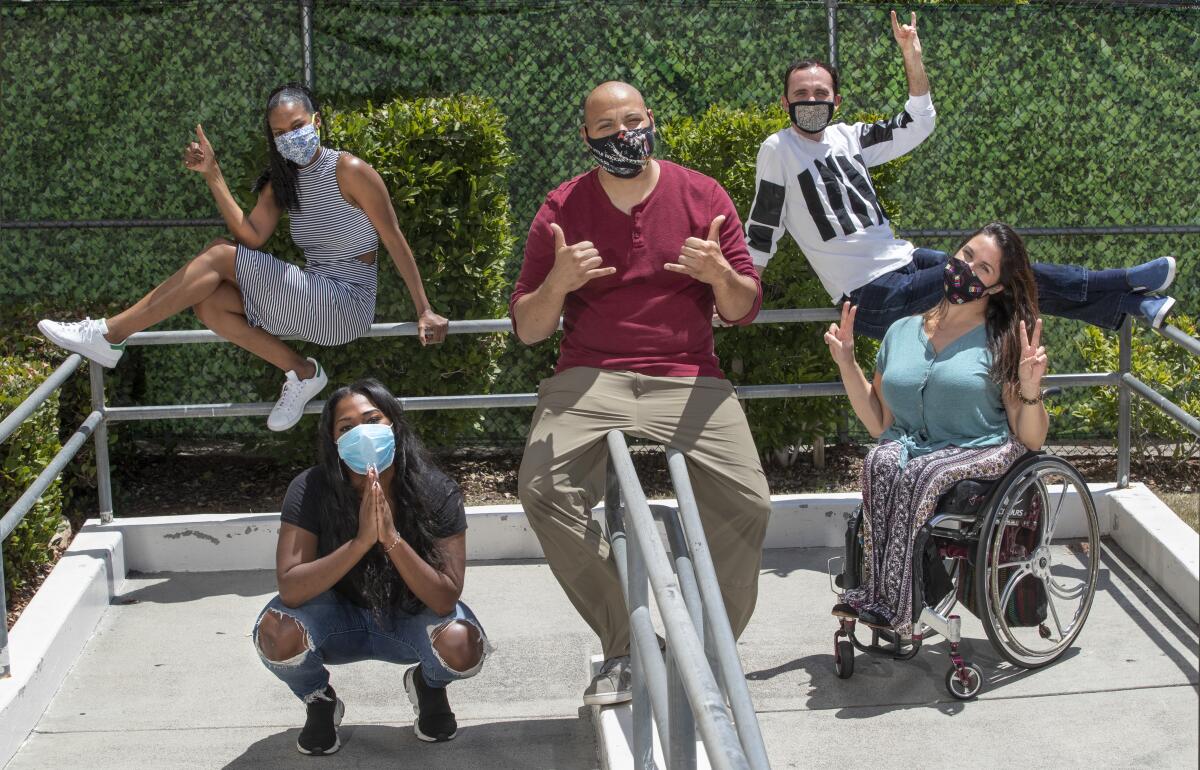
Veteran comedians at UCB from historically marginalized groups launched an initiative in June called Project Rethink with the goal of dismantling “systemic oppression of all kinds” at the company. Included in the one-page list of goals and demands sent to management: that the powerful, traditionally white role of artistic director be broken up, that BIPOC and disabled performers must have a seat at the table where administrative decisions are made, and that they be involved in company discussions about seeking nonprofit status — part of the company’s restructuring plan prior to the pandemic.
“Because of COVID-19, that capitalist hamster wheel has had to stop, and there’s now time to breathe and realize what’s going on, and to make changes,” said “Superstore” actor Colton Dunn, who started working with UCB in New York City in 1999. He was one of the first teachers at the L.A. school in 2005, and he was one of three Black people out of dozens of performers. “So when UCB or Second City or the Groundlings reopen, how do we make sure they do so like phoenixes from the ashes of this old system that is infected with institutional racism?”
The coronavirus crisis has provided an unwelcome lesson in the hidden perils of working in the kind of high-touch environments required of movie and TV production.
Chicago-based Second City, which has a branch in L.A., erupted in controversy in June when an open letter from prominent alumni including Chris Redd and Sam Richardson called for an investigation of racism and sexism in the company culture. CEO and co-owner Andrew Alexander resigned June 5, acknowledging a failure to create an antiracist environment.
“There seems to be a pattern in comedy groups in general when it comes to issues of sexism and racism in how theaters are run, how casting is done and who is and isn’t getting favors,” said Geoff Ross, who took his first improv class in 2008 and has been with UCB in L.A. since 2016.
Ross, who is Black, said he hopes Project Rethink will effect change, but the pandemic has caused him to reconsider how he invests his time and energy.
“Is it wiser to try to get an existing organization to change and function the way you would like it to,” Ross asked, “or is it better to use your energy to carve out your own space?”
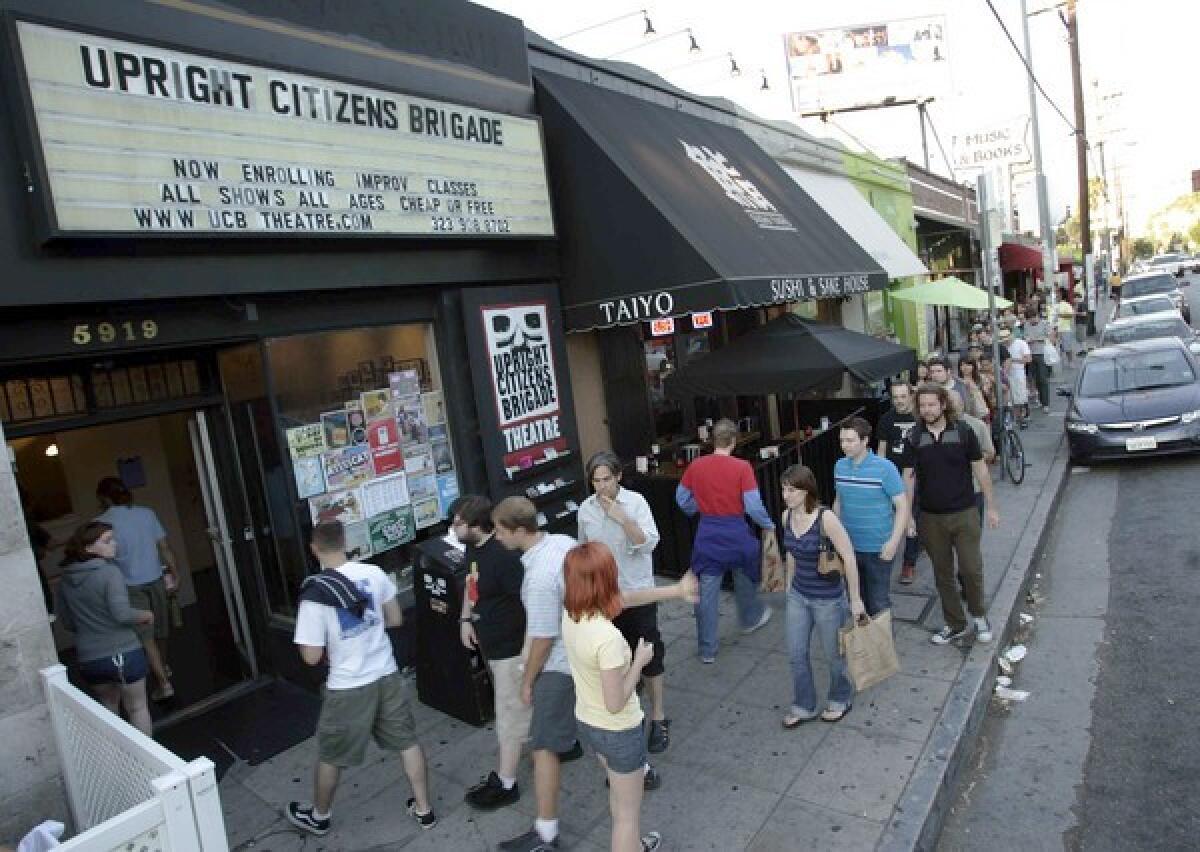
Project Rethink members said their demands are being taken seriously by UCB, which was founded by Amy Poehler, Matt Walsh, Matt Besser and Ian Roberts in the early 1990s. The fact that the UCB 4, as the founders are known, are all white is not what rankles critics. It’s that a largely white male power structure has remained in place for more than 20 years.
The same feeling is prevalent at the Groundlings, founded in 1974 and also an important pipeline for improv and sketch artists cast in shows like “Saturday Night Live.” Famous alumni include Will Ferrell, Melissa McCarthy and Kristen Wiig.
In solidarity with the Black Lives Matter movement, the Groundlings posted a commitment to change on its website, including a pledge to expand diversity, outreach and scholarship programs; to be actively antiracist as an institution; to put more BIPOC performers onstage; and to be more inclusive in its hiring practices. It also launched a “listening committee” to field concerns about racism and sexism in classrooms and on stages.
“Comedy institutions have a lot of work to do because the basis of comedy was white straight male humor for so long, and everybody is trying to dig out from under that past,” said Groundlings Managing Director Heather de Michele. She said a lot of positive changes have taken place since the Groundlings instituted its diversity initiative in 2015, and she said the company has awarded more than 600 diversity scholarships totaling more than $175,000. “But I will say we have to do more and we recognize that.”
The Groundlings’ 10-year white streak was broken in 2016 by Lyric Lewis. Today she is joined in the main company by two other Black performers, Leonard Robinson and Julian Gant.
Members of the main company, still capped at 30, are voted in by other main company members after completing up to 18 months of weekly performances as part of an ensemble student sketch company. Rick Davis, an outside counsel for the Groundlings and a former board member who helped to formulate the diversity initiative, said the changes will take time. The goal, he said, is to have BIPOC performers represented in the Groundlings at the same level that they are represented in the community at large. In L.A. County, for example, that would mean about 49% Latino, 15% Asian, 9% Black and 2% American Indian, Native Alaskan or Native Hawaiian.
Critics lament that, despite all the talent that has flowed across the Groundlings stage in three decades, you still could count on two hands the total number of BIPOC performers who have been in the main company — and have a few fingers left over.
Robinson said his experience with the Groundlings has been largely positive and that the company is on a path toward meaningful change. Other critics with the Groundlings and UCB echoed his feelings, likening the groups to family and saying they want to encourage better habits and behaviors.
The issues faced by these companies, they said, are not the result of villainous and overt racism at the top but rather the manifestation of the institutional racism rooted in American life.
“It’s an entertainment industry problem, it’s a state of comedy problem,” Robinson said. “People are in the streets burning buildings down, literally, because it’s a problem with the history of the world — diversity and inclusion.”
Robinson’s wife, Roxana Ortega, who is Latina and was a student at the Groundlings from 2003 to 2008, submitted ideas to the listening committee including striving for more transparency in the voting process, hiring a school counselor or mediator to resolve conflicts, and creating a recruitment committee to diversify the classrooms and the stage. Like Robinson, she said the Groundlings is on a path toward meaningful change.
Others, however, question whether institutions hobbled by systemic racism for so long are capable of reform — or worthy of the effort. A number of Black performers recently have built successful homes for themselves, including “A Black Lady Sketch Show” on HBO and “Astronomy Club: The Sketch Show” on Netflix, the latter from a group whose members branched off from UCB.
Park, the former Groundlings administrator who also took classes there in the early aughts, called the group “the Whitelings” and said the pain and humiliation she experienced struggling to recruit and retain BIPOC students manifested in the form of general anxiety disorder and gastroesophageal reflux disease.
Park said she went to comedy clubs and coffee shops in Inglewood and South L.A. and invited Black performers to come and audition.
“Every single one of those Black faces was turned away,” Park said. “The board was four or five white people, and every week I’d go to the board with my concerns, and they were never addressed or talked about.”
Park said she resigned after a white teacher mocked her with a racial stereotype in front of his students. That teacher, she said, was put on temporary leave but has since been reinstated and still teaches at the school. A representative for the Groundlings said the incident predates the current administration and encouraged Park to report the incident to the listening committee for further investigation.
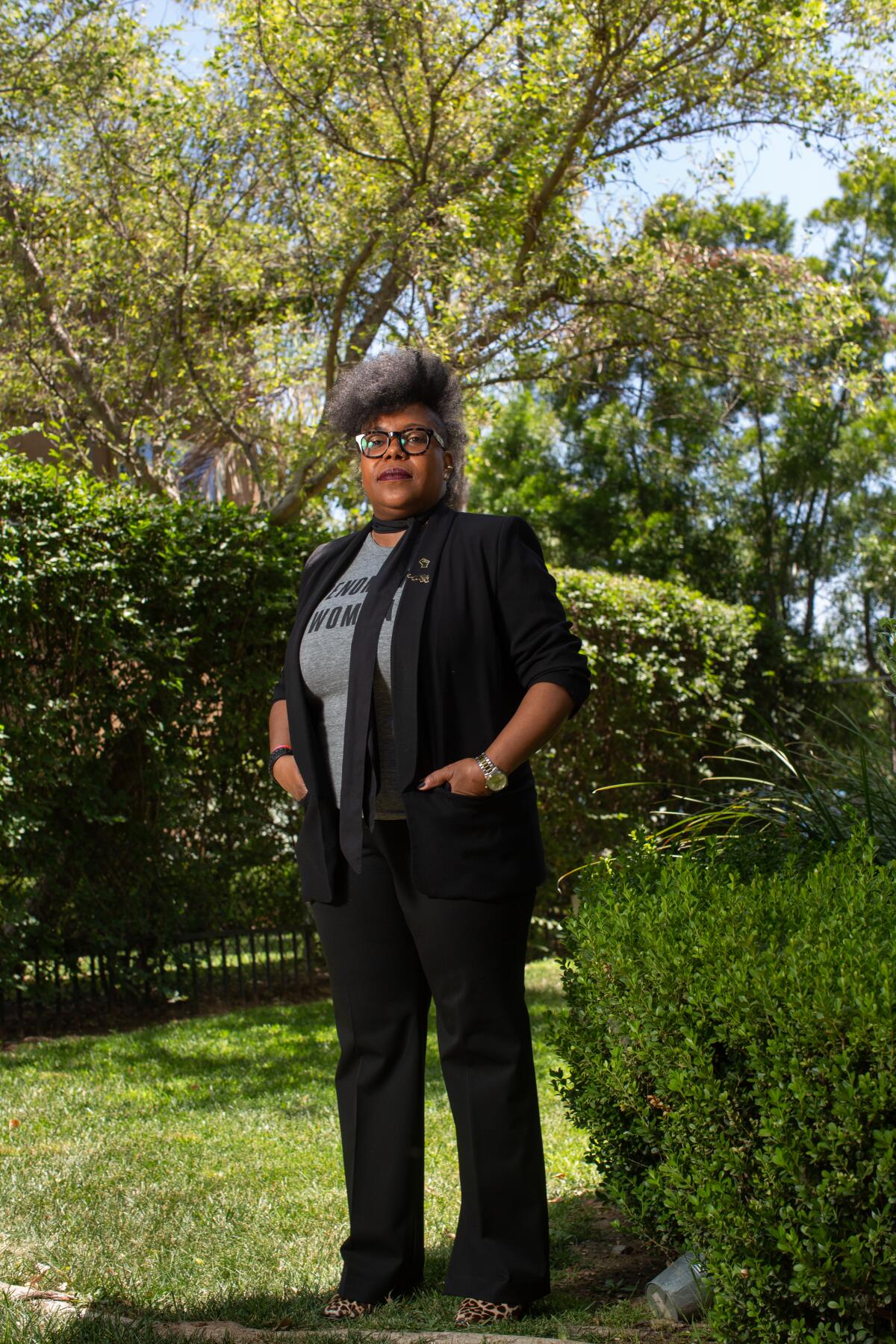
Critics and management alike agree that the problem facing the institutions, when it comes to adequate representation of BIPOC performers, starts at the bottom with recruitment and retention.
Daniel Robbins, who taught at the Groundlings for four years, left in 2017 after sending a letter to the school about implicit bias that he felt was not being addressed. His letter said he could not in good conscience continue to teach BIPOC students “knowing that as they worked their way through the school, it was going to become harder and harder for them,” Robbins said.
The problems are not just ideological but also financial. Improv and sketch comedy can be careers of privilege. An eight-week course of classes at UCB costs $450; a series of 12 improv classes at the Groundlings runs $525. Both companies offer diversity scholarships, but BIPOC students said financial barriers are one reason they often find themselves to be the sole performers of color in a class or on a stage.
Being “the only,” as one former student called it, has a particular set of challenges when writing a sketch. A Black writer can’t create a sketch that involves a family member, for example, unless that family member being white is the punch line.
Writing your experience, in general, becomes problematic, especially when you are expected to immediately understand and react to white cultural references (think Harry Potter and Wes Anderson). Meanwhile, your own cultural references remain largely misunderstood by white performers.
Misty Monroe is a former member of the Groundlings’ Sunday Company, an upper-level group of performers who are being evaluated to become main company members. She said one reason she rarely does improv is because as a Black woman, she constantly found herself reduced to stereotypes based on white prejudice.
The Times interviewed nearly two dozen Black entertainment industry voices, spanning directors, producers, writers, designers, agents and executives. They discussed racism in Hollywood, what needs to change and their frustration with years of talk and little action by powerful companies.
“You will be labeled a prostitute. You will be labeled ignorant. You will be labeled a criminal. You will be labeled someone who does hair,” Monroe said. “All the experience specific to my Blackness can never be reflected on that stage. I did not find white people having the same limitations that I had.”
When you can’t pull from your own life experiences, BIPOC performers said, you won’t go as far in your career. White teachers can compound the problem by having a limited perspective themselves.
Jasmine Elist, an Iranian American who spent six years with the Groundlings (and is a former Times employee), said that when she was a member of the Sunday Company, a teacher would give her grief every time she tried to pitch or play a Middle Eastern character. The teacher would say the characters were the same or similar, even though they were different ages and had different physical attributes and vocal cadences.
“She reduced and minimized a character to the character’s cultural background, determining that one character from Iran was like any other character from Iran,” Elist recalled in an email, adding that she considered the treatment of some other cast members overtly racist.
In January 2020 Elist reported the teacher to managing director De Michele, but Elist was never told how the complaint was handled, only that it had been “taken seriously, and addressed in a timely manner.” The teacher is still at the Groundlings. De Michele said privacy rules prevented her from sharing more information.
Elist raised the issue again with the Groundlings listening committee, and she had a Zoom meeting with a fact collector recently hired by the Groundlings. Management said this person will work with outside attorneys to investigate specific concerns and report recommendations for further action.
Other performers said they never felt overt discrimination but microaggressions and seemingly small challenges did put them at a disadvantage.
Navaris Darson, who teaches diversity workshops and core-track improv classes at the Groundlings, said that when he was a student, he had to drive to Crenshaw to buy his own high-quality wigs while white classmates could save money by sharing wigs. Little things like that add to a larger sense of frustration and go largely unnoticed by white teachers and performers, he said.
Darson, who has been involved with the diversity committee since its inception, said he has high hopes that the company is on the right track, and he gets emotional thinking about his love for his fellow performers.
“I wouldn’t have a career if it wasn’t for the Groundlings. It’s more than just a job for me. Those people are my family,” Darson said. “I really do trust them to do the right thing.”
Doing the right thing, however, can have pitfalls, critics said. A focus on diversity can swiftly become a matter of optics, said UCB writing partners Eileen Soong and Julie Hoang.
The Asian American women have been on the same writing team since 2018 and had developed a great writing dynamic and relationship, they said, but they were recently broken up. The reason, they heard: Keeping two Asian women together on a team would be perceived as racist.
Soong said race never would have been part of the discussion about two white writers.
“It feels like we were broken up to diversify the other teams,” Hoang said. “That just shows there aren’t enough diverse people to begin with.”
BIPOC performers must find and champion one another within the community in order to thrive, but mentorship can be lacking. Shaun Diston, who has been with UCB since 2008 and is one of the comedians behind Project Rethink, said BIPOC performers must work five times as hard as other performers to get to the top. Once there, they can get picked up for jobs in Hollywood and move on quickly. (Hollywood, he said, checks in now and again looking for BIPOC talent when it’s trendy to do so.) But the churn means that UCB regularly has a diversity gap, and promising students of color are sometimes moved up in the ranks before they are ready.
“After that well-intentioned move, they end up floundering because there’s no support,” Diston said. “They get spit out in a way that feels like, ‘You don’t value my diversity, you’ve used it, the joy has been crushed out of it.’”
The devaluation of BIPOC students as performers can be particularly bad during the audition process, when 20 white people are in a room analyzing a performer who may be traumatized by the unconscious bias and microaggressions of those same people.
Diston said he would go to these auditions as a judge and try to voice his opinions, only to be told that it wasn’t the time to talk, or that what he said was wrong.
“If my voice isn’t going to be heard, I’m not going to sit here so that you can say there were Black people watching the auditions,” Diston said.
The Times repeatedly reached out to UCB Artistic Director Christine Bullen and Academic Director Johnny Meeks for comment. Meeks did not respond, and Bullen said she was no longer qualified to speak on behalf of UCB because her continuing role with the company was undetermined. She said she wholeheartedly supports Project Rethink.
In mid-June the UCB 4 issued a statement to company members that as of Aug. 1, the founders will no longer handle day-to-day operations of the school and that once they received nonprofit status, they would hand over control of UCB theaters to a new board of “diverse individuals.”
It is unclear who these individuals will be, but Project Rethink has plenty of ideas.
More to Read
The biggest entertainment stories
Get our big stories about Hollywood, film, television, music, arts, culture and more right in your inbox as soon as they publish.
You may occasionally receive promotional content from the Los Angeles Times.
